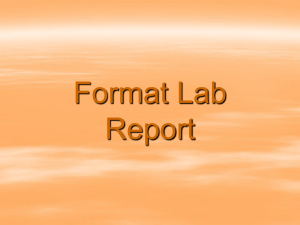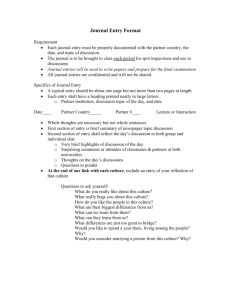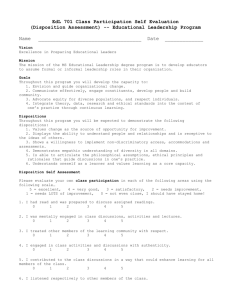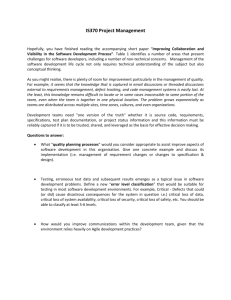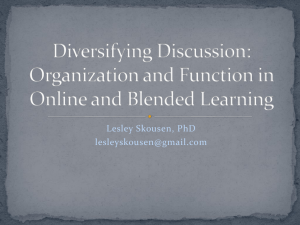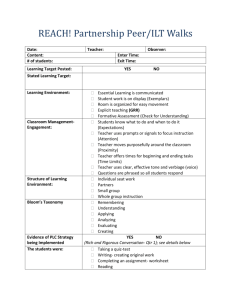2008 All-Academy Workshop: The Questions We Ask & Don’t Ask:
advertisement
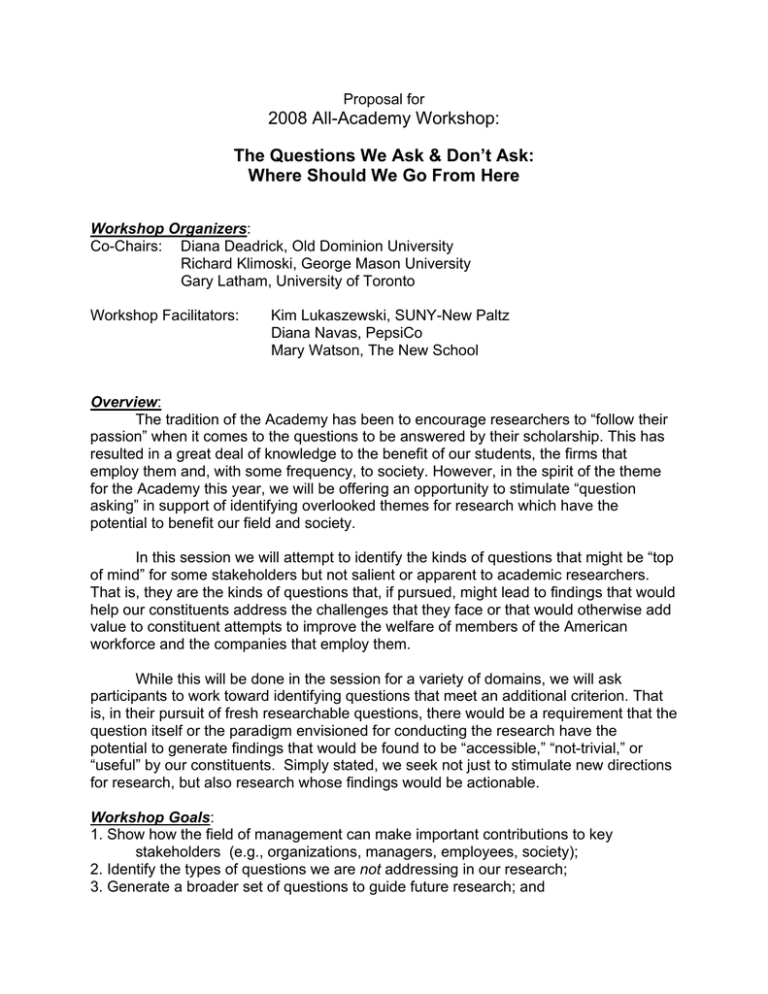
Proposal for 2008 All-Academy Workshop: The Questions We Ask & Don’t Ask: Where Should We Go From Here Workshop Organizers: Co-Chairs: Diana Deadrick, Old Dominion University Richard Klimoski, George Mason University Gary Latham, University of Toronto Workshop Facilitators: Kim Lukaszewski, SUNY-New Paltz Diana Navas, PepsiCo Mary Watson, The New School Overview: The tradition of the Academy has been to encourage researchers to “follow their passion” when it comes to the questions to be answered by their scholarship. This has resulted in a great deal of knowledge to the benefit of our students, the firms that employ them and, with some frequency, to society. However, in the spirit of the theme for the Academy this year, we will be offering an opportunity to stimulate “question asking” in support of identifying overlooked themes for research which have the potential to benefit our field and society. In this session we will attempt to identify the kinds of questions that might be “top of mind” for some stakeholders but not salient or apparent to academic researchers. That is, they are the kinds of questions that, if pursued, might lead to findings that would help our constituents address the challenges that they face or that would otherwise add value to constituent attempts to improve the welfare of members of the American workforce and the companies that employ them. While this will be done in the session for a variety of domains, we will ask participants to work toward identifying questions that meet an additional criterion. That is, in their pursuit of fresh researchable questions, there would be a requirement that the question itself or the paradigm envisioned for conducting the research have the potential to generate findings that would be found to be “accessible,” “not-trivial,” or “useful” by our constituents. Simply stated, we seek not just to stimulate new directions for research, but also research whose findings would be actionable. Workshop Goals: 1. Show how the field of management can make important contributions to key stakeholders (e.g., organizations, managers, employees, society); 2. Identify the types of questions we are not addressing in our research; 3. Generate a broader set of questions to guide future research; and 4. Ensure all members of the Academy have a voice in the process. Workshop Deliverables: Short-term – Generate a set of researchable questions for workshop participants. Long-term – Publish results of workshop for dissemination to AoM members and other constituents. Workshop Format: Topics for table discussions will focus on “How the field of management can contribute to the effectiveness of Organizations, Employees, Managers, Society, and Science.” The complete list of discussion topics is attached. Each table is charged with generating research questions that are both “new” (overlooked issues) and “useful” (actionable). The format for this session will consist of interactive table discussions. These table discussions will be conducted simultaneously. Depending on attendance at the session, there will be as many as 14 roundtables (each discussion topic with be divided into two tables) or as few as 7 roundtables. Each table will be moderated by one or two Discussion Leaders who are subject matter experts in that area and reflect the broad domains in the Academy (e.g., micro and macro emphases; small and large institutions; domestic and international perspectives; academic and practitioner members). Discussion leaders will invite audience members to participate in these interactive discussions. Our goal is that all the workshop participants will leave with a set of new directions for future research. Preliminary results will be published on Academy website. We envision the workshop as a two and a half (2 ½ ) hour session: $ $ $ $ $ Initial Introductions and Interactive-Process Overview (20 minutes); Discussion leaders invite audience to participate in interactive table discussions (10 minutes); Table Discussions to generate Research Questions (60 minutes); Discussion facilitators will involve Table Leaders in short presentations regarding the results of their table discussions (30 minutes); Audience will be invited to ask questions and debate issues (30 minutes) Discussion Topics and Table Leaders Table Discussion Leaders: Table Topics: Contributions to Organizations: External Effectiveness Michael Hitt, Texas A&M University Jone Pearce, University of California - Irvine Wayne Cascio, University of Colorado - Denver Internal Effectiveness Mary Ann von Glinow, Florida Int’l University Lyman Porter, University of California - Irvine Global Effectiveness Randall Schuler, Rutgers University Miriam Erez, Technion – Israel Instit. Of Tech. Contributions to Employees: Employee Well-Being Contributions to Managers: Managerial Effectiveness Contributions to Science: Theory & Research Contributions to Society: Social Issues Lois Tetrick, George Mason University Dan Ganster, University of Arkansas Randall Dunham, University of Wisconsin Deb Cohen, SHRM Karl Weick, University of Michigan Eugene Stone-Romero, University of Texas - San Antonio Ann Buchholtz, University of Georgia Myrtle Bell, University of Texas - Arlington
